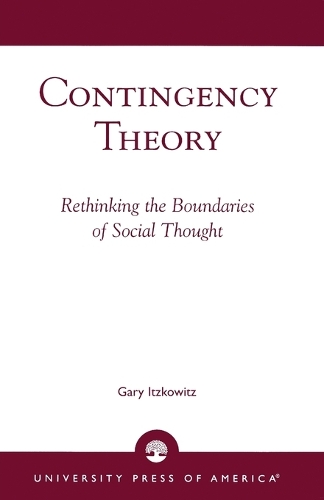
Contingency Theory: Rethinking the Boundaries of Social Thought
(Paperback)
Publishing Details
Contingency Theory: Rethinking the Boundaries of Social Thought
By (Author) Gary Itzkowitz
University Press of America
University Press of America
19th September 1996
United States
Classifications
Tertiary Education
Non Fiction
Social, group or collective psychology
Society and culture: general
301.01
Physical Properties
Paperback
284
Width 141mm, Height 216mm, Spine 21mm
376g
Description
A major task for social theory in the 1990s is to explain the relationship between individuals and social structures. This book makes two simple suggestions for forging a micro/macro link. First, theorists should abandon their search for universal laws governing society. Second, abandoning overarching laws does not leave postmodern mayhem as the only alternative. Following twentieth century scientific discoveries, this book argues that while micro and macro social processes remain related, they do so only as an aftermath of autonomous developments in each level. Since the two autonomous levels may emerge at odds, or in tandem, their relationship becomes contingent and unpredictable. The concept of contingency is a breakthrough for social theory. Where current micro/macro debates are merely an expanded, but veiled, regurgitation of philosophical issues debated long ago, the concept of contigency allows social theory to transcend old paradigms and explain contemporary society.
Author Bio
Gary Itzkowitz is Associate Professor of Sociology at the University of Wisconsin-Stevens Point.
